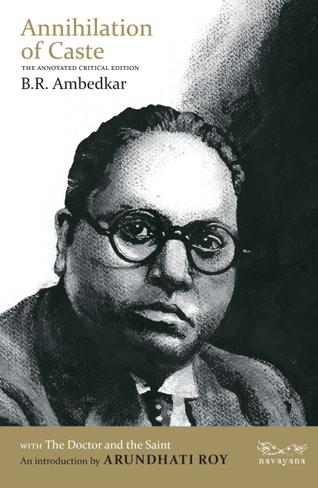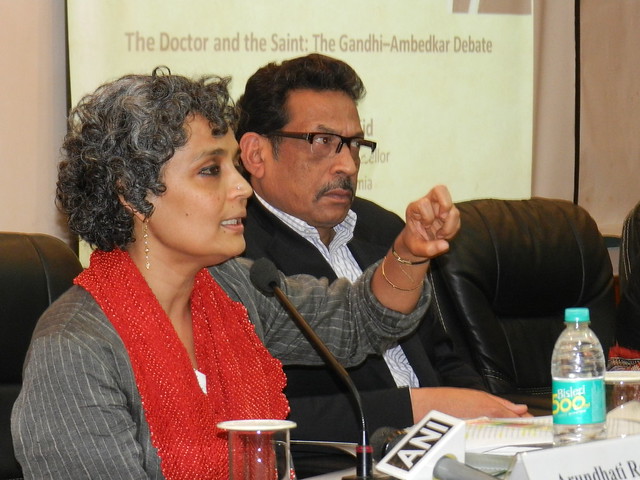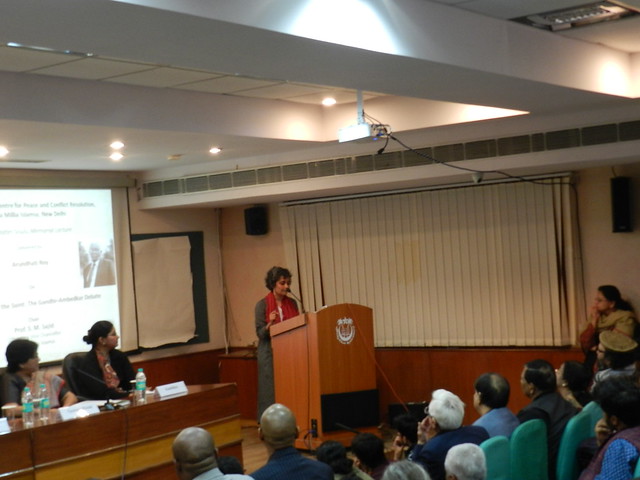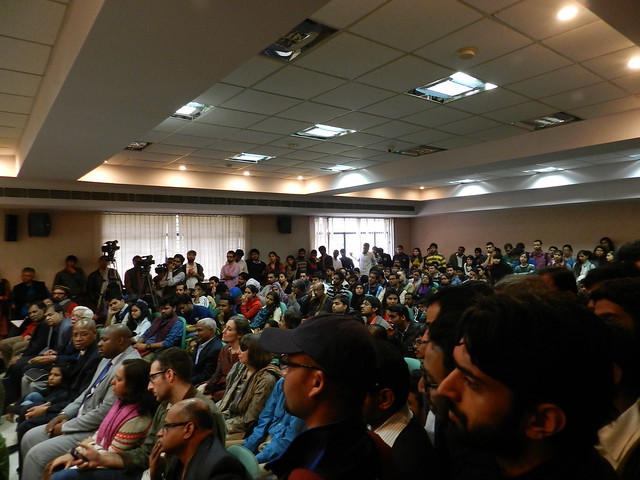Celebrated author of ‘God of Small Things’ call Mahtama a ‘Reeactionary’ and regards him as not only castist but also racist.
By Lalita, TwoCircles.net,
New Delhi: In an attempt to revisit the Ambedkar-Gandhi debate over caste hierarchy, celebrated author of ‘God of Small Things’ and Essayist Arundhati Roy spoke on “vicious sort of apartheid that functions in our society”, namely caste system.

She was delivering the 6th Walter Sisulu Memorial lecture at Jamia Millia Islami, organized by Nelson Mandela Centre for Peace and Conflict Resolution on March 4. The theme of the lecture is derived from the introduction she recently wrote for Ambekar’s treatise, Annihilation of Caste, i.e. “The Doctor and the Saint”.
The Director of the organizing center, Tasneem Minai, introduced the broader Walter Sisulu Memorial lecture series, highlighting the contributions Sisulu had made in fight against Apartheid. The Vice Chancellor of Jamia Millia Islamia highlighted the importance of the lecture which included both Mahtama Gandhi and Bhim Rao Ambedkar.

In her lecture Arundhati, who is known for the bold stand she takes on issues, focused mainly on the years Gandhi spent in South Africa, concluding that there was no opposition from Gandhi against either imperialism or fascism. Basing her narrative on the letters and articles Gandhi had written, Roy claimed that what bothered Gandhi was not absolute inequality, but the discrimination that ‘upper caste’ Indians had to face in South Africa. He specifically opposed their treatment as lowly as those of ‘kaffirs’ who were blacks. At many places he refused, rather approved of the inferior features of the lower castes in India or Black Africans, she said.
In a lighter vain she referred to Gujarat Chief Minister’s remark on ‘Bhangis’ and connecting it with what Gandhi had said about ‘Harijans’ and wanted “ The Ideal Bhangi.” In similar vein she commented on Aam Aadmi Party’s Gandhism, and joked that those claim to be Gandhians also drive out Black foreigners, adding that such acts are not “Gandhian.”

Those interested in exploring the whole debate about caste between Gandhi and Ambedkar, with a new lens to the existing history, would find a lot of disturbing questions that she cites in her Introduction to Annihilation of Caste, titled “The Doctor and the Saint” which was originally a lecture prepared but never delivered by Ambedkar for ‘Jat Pat Todak Mandal’ of Lahore. The speech was cancelled because of its content that questioned the caste hierarchies in Indian society, specifically Hinduism, says Roy. The Excerpt of the Introduction has also been published in the latest issue of The Caravan.
The audience comprising of students and professors, activists, posed equally exciting questions to the speaker. The opposing views focused on the role Gandhi had played in leading the nation to independence. To this Arundhati quoted from her introduction “for some it was freedom, for others it was transfer of power”, hinting towards the marginalized dalit community that continues to suffer and has enjoyed no real freedom, thanks to the deep-rooted caste system in our society.

In a reply to the criticism that she has not scrutinized Ambedkar with such intensity, Roy said that she has diverging views from Ambedkar on many issues, the major one being Ambedkar’s neglect of tribals and their rights. This was surprising how both men who could see the injustices in one place could so easily ignore the injustices at other places.
In her final comment, she hinted towards going beyond the given history about Gandhi, non-violence and satyagraha. The essential question she posed is that how can a society claim to cherish non-violence and satyagraha, when it is based on the caste system in which violence is inherent?
(Photos: M Reyaz)
